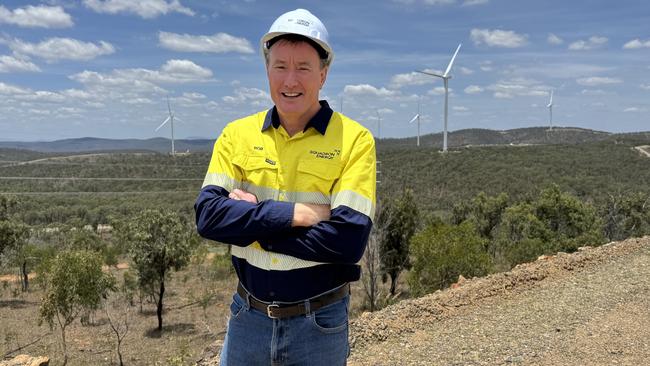Heat spike puts NSW power grid on edge
NSW households and businesses are on edge this week with the threat of electricity blackouts as the mercury rises.

Hot weather in NSW has put households and businesses on edge amid the threat of electricity blackouts, with coal and transmission outages leading the market operator to warn of a supply squeeze though the week.
More than 1700 megawatts of electricity supply faced disruption during a heat spike set for Wednesday. That forecast was later pared back to a less critical level due to the cancellation of transmission outages in the state.
The Australian Energy Market Operator said “forecast electricity reserves have improved in NSW this Wednesday. AEMO remains focused on maintaining electricity reliability in both NSW and Queensland this week, as high temperatures are expected to drive strong energy demand amid significant generation unavailability in NSW”. Tapping into emergency reserves could be a possibility if supply forecasts deteriorated, AEMO added.
Andrew Forrest’s Squadron Energy said the warning underscored the dangers of an energy system still largely reliant on coal.
“AEMO has confirmed that the combination of high temperatures across NSW and Queensland, along with coal plant outages, will cause tight electricity supply forecasts in the coming days,” said Squadron boss Rob Wheals. “We know that Australia’s coal fleet is nearing the end of its economic and technical lifespan, with coal plant outages driving high price periods.”
Squadron said its proposed Port Kembla gas import terminal was capable of resolving Australia’s looming domestic gas shortage by guaranteeing supply.
AEMO, in October, conceded there was no guarantee the country’s energy transition would deliver cheaper power bills.
Its transition road map, which the Albanese government endorsed, says renewables, backed up by large-scale batteries and gas, is the cheapest way of replacing coal power stations – many of which are under sustained economic pressure and already nearing the end of their technical lifespan.
But when asked, AEMO chief executive Daniel Westerman said he could not offer any guarantees delivering the transition would lead to lower power bills.


To join the conversation, please log in. Don't have an account? Register
Join the conversation, you are commenting as Logout